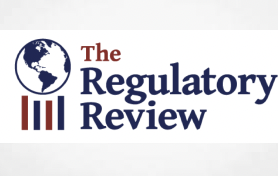Scholars urge the European Union to take Artificial Intelligence Act enforcement seriously.
When you ask ChatGPT whether it would consider reactive or proactive governance to be more equitable, it responds: “it depends.” What ChatGPT does not emphasize is that it was one of the key technologies that influenced the European Union’s decision to shift from reactive to proactive AI governance, attempting to form a more comprehensive, principled vision for AI development.
In a recent article, Professors Oskar J. Gstrein, Noman Halleem, and Andrej Zwitter of the University of Groningen describe the recently passed European Union Artificial Intelligence Act (AIA), a hybrid regulation focused on safety and standardization of AI models while still granting some consideration to fundamental rights.
The authors present an initial analysis of the AIA, primarily emphasizing how critical effective enforcement will solidify it as the global benchmark for preemptive and proactive AI regulation.
The authors raise concerns about the logistics of enforcement that are currently being built up at both the national level of member states and at the EU level through a newly created AI Office. With AIA bans on “unacceptable risk” models and enforcement abilities against them becoming legally binding within a year of publication in the Official Journal, the official publication for EU legal acts, the authors argue that the AI Office might not be adequately staffed with trained experts and ready to operate by the time the regulations become enforceable.
The Act seeks to balance centralized and decentralized enforcement mechanisms. But the authors emphasize that critics fear that excessive enforcement power could end up being delegated to individual member states, either intentionally or because of limited resources at the international level. Given that EU member states vary in terms of priorities, AI literacy and skills, and access to resources, this could cause inconsistent enforcement from state to state. The authors caution against such a potentially uneven enforcement regime.
To overcome the decentralization problem and maintain equitable and even enforcement throughout the EU, the authors support the “development of sound administrative and market surveillance practices.” They emphasize the importance of the AI Office at the EU level being adequately staffed and integrated, “in quantity and quality of officials working there.” The authors also highlight the need to uphold democratic legitimacy in AI regulation. They warn that it could be undermined if unelected “technocrats” are responsible for interpreting the rules of the AIA across vast domains of AI usage, especially in various EU member states that lack the necessary expertise and resources to implement the regulations properly.
The rise of ChatGPT and similar AI chatbot systems in 2022 fueled debate among EU legislators drafting the AIA. While the AIA creates four risk categories for AI models, general-purpose artificial intelligence (GPAI) models are treated separately and are not assigned in any of these categories. The authors argue that AIA’s approach to regulating GPAIs makes GPAI regulation particularly dependent on careful enforcement. The authors note the regulations that govern GPAI models conflate the complexity of models and their function when categorizing them as GPAI and subsequently regulating them as such.
Read full article




